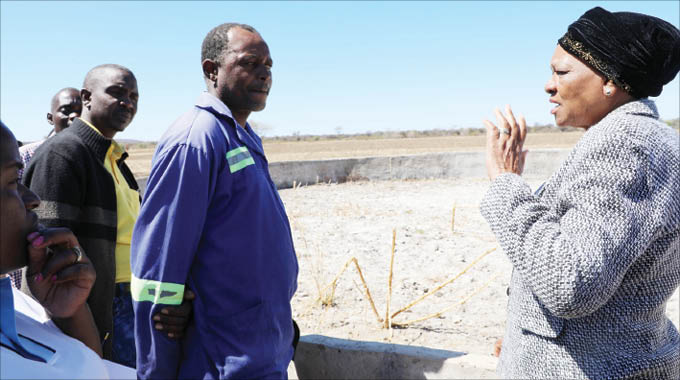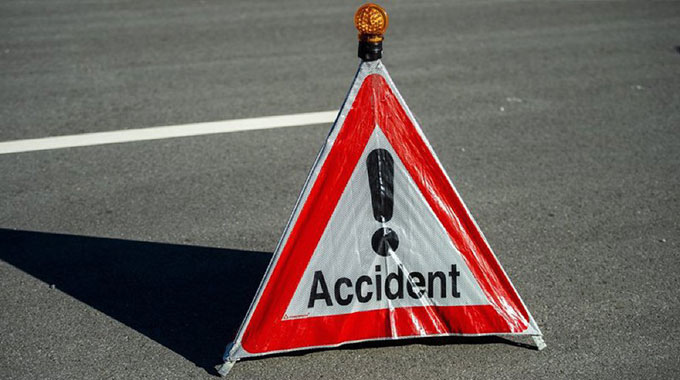VIDEO: Devaluation derails irrigation schemes rehabilitation

Pamela Shumba, Senior Reporter
THE rehabilitation of irrigation schemes across the country has been frustrated by the devaluation of the local currency, which has prompted contractors to always review budgeted amounts upwards, the Minister of State in Vice President Constantino Chiwenga’s Office, Evelyn Ndlovu, has said.
Speaking during a tour of two of the irrigation schemes in Umguza District, Matabeleland North on Thursday, Minister Ndlovu admitted that a number of irrigation infrastructure upgrade projects were in limbo due to inadequate funding but quickly pointed out that Government was putting in place measures to quicken the pace and ensure sustainable food production in communities.
Minister Ndlovu, who is also Bulilima-Mangwe proportional representation legislator, visited Phaphamani and Carlsvale Irrigation Schemes in Umguza.
The visits are part of a nationwide tour to assess progress on the revival of non-functional irrigation schemes.
“The irrigation schemes have great potential to uplift the livelihoods of the people in the communities and this is a good programme, which the Government has embarked on. The challenge we have, however, is the issue of foreign exchange fluctuations, pricing of inputs and materials used in these schemes.
“It doesn’t make sense that one scheme required $1 million when the project started but now the contractor is demanding $14 million to complete the project. The $14 million will just wipe out the whole budget as the Government has injected $40 million for all projects nationwide,” said Minister Ndlovu.
She said measures will soon be put in place to map the way forward and ensure there’s progress on the rehabilitation of the schemes.
“If you look at the rates now, there’s stabilisation of the local currency. I would recommend cancellation of the contracts so that we start afresh on a clean slate. It’s unsustainable.
“We really need to think about the pricing issue or probably resolve to start afresh for these projects to be completed or else use the Government institutions to do the work. We’re working on the revival of many irrigation schemes in the country,” said Minister Ndlovu.
She added that the Government was not targeting new schemes but old ones that are non-functional, with plans to establish new ones in communities where there are no irrigation schemes.
Minister Ndlovu said the revival of the irrigation schemes was part of efforts to provide adequate food for the country, which is importing maize and wheat.
“At the moment we’re importing grain, meaning we’re not secure when it comes to the provision of food in the country. “That’s why we’re pushing for the irrigation schemes to be operational so that we increase productivity on the farms and stop the importation of maize,” said Minister Ndlovu.
The Minister said the Government was also looking at the performance of the Procurement Regulatory Authority of Zimbabwe (PRAZ) and the procurement units in each ministry to make sure that there are no delays that will affect progress on the irrigation projects.
“We need some training because it’s a new system. People are not yet conversant with it. So we’ve recommended training for the people who have been appointed in the procurement units in various ministries.
“The trainings will encourage effective communication. Some of the issues raised at these irrigation schemes could have been addressed had the ministry approached our office.
“We could have waivered the procurement regulations to facilitate the process,” said Minister Ndlovu.
She said her office had a transitional plan for short term projects, through the 100-day programmes and a three-year long term plan (2020-2023) as it makes efforts to complete all the projects.
The Minister was yesterday expected to visit Tshongokwe Irrigation Scheme and Arda Farm in Lupane. — @pamelashumba1











Comments